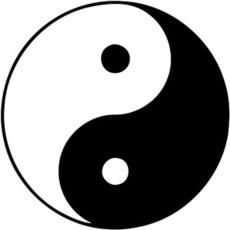Sleep
Natural Sleep Aids
A number of commonly available herbs are used to treat insomnia.
Posted May 6, 2013

Pictures from Longwood Gardens taken by Raul654 On May 1, 2005.
In the past I have discussed the use of cognitive behavioral strategies for managing insomnia and have touched on some of the potential problems presented by prescription sleeping medication. Below I will consider some of the most commonly used herbal treatments for insomnia.
Sleeping medication certainly has a role to play in the treatment of insomnia. These medications are powerful, however, and not without potential side effects and untoward outcomes. For example, Zolpidem (Ambien) is a commonly prescribed sleep aid. A May 1, 2013 report from the Substance Abuse and Mental Health Services Administration (SAMHSA) noted that emergency department visits for adverse reactions to zolpidem increased about 220% from 2005 to 2010. This means that there were 6,111 visits to emergency departments in the US in 2005 and 19,487 in 2010 due to adverse reactions to this medication. In 2010 women accounted for 68% of these visits and those 45 years of age and over accounted for 74% of the visits. Of note, 50% of these visits involved combined use of zolpidem and other prescription drugs such as narcotic pain medications, anxiety medications and other insomnia medications. Examples of adverse reactions included dizziness, hallucinations, agitation, sleepwalking and sleep driving. All of these effects were made worse by the addition of other drugs.
As a result of concerns about prescription medications such as zolpidem and over the counter drugs such as diphenhydramine, patients often ask about using “natural” or “herbal” sleep aids as an alternative to sleep medication. Medicinal plants have been used for countless purposes, including to help people sleep, for thousands of years. Currently, herbal preparations that don’t claim to treat a medical disorder are regulated differently from pharmaceutical drugs. Regulation is for safety but no requirements are made for companies to release data on the purity, efficacy or safety of these supplements. This means that frequently there is little scientific information available for review to guide decisions about using herbals. Despite this limitation, herbals are nonetheless frequently used for treatment of insomnia and may be recommended by physicians to their patients.
As an evidence-based practitioner, when I am asked about herbal supplements that can be used for insomnia, I inform patients that there is limited scientific evidence available to consider using herbals but that there are several which are available at pharmacies and health food stores. Without making any claims about safety or efficacy, I am listing below the most common herbals used for insomnia. It is generally recommended that when using herbals as a sleep aid, it is often best to take them during the day to reduce anxiety and then also about half an hour before bedtime to help sleep onset. The following is based on list of herbals assembled by a physician colleague of mine, Dr. Nina Konstantinova.
Chamomile. Chamomile is an herb with sedative properties that has been used for hundreds of years as a calmative and sleep aid in Europe and South America. For many years it has also been freely available as a tea in the United States and in many other countries. Typically one to three cups are taken daily.
Hops. Most often associated with the bitter taste in beer, hops have more recently been used as a treatment for insomnia. Toward this end, they are consumed as a tea, and one to three cups are taken per day.
Lavender. This herb grows in many sunny locations, most notably in the lavender fields of Provence, in France. Its scent is thought to have soothing properties. Lavender is used as a cologne, is incorporated into candles, and has often been used in aromatherapy. It is also taken as a tea, two to three cups a day.
Passion Flower. This is another herb reputed to have sedative properties and is often used in England for relief of stress. It is consumed as a tea, three cups a day.
Valerian. This herb has been used for over 1,000 years and is the herbal preparation most commonly recommended by sleep physicians when their patients ask about using an herbal supplement for sleep. Interestingly, the active ingredient in it remains unknown. The usual dose is 400 to 900 mg per day and it is available both in capsules and as a tea.
Wild lettuce. Very little information is available about this herbal but it is reputed to be helpful with restlessness and insomnia. It is available in a tincture that is consumed as 2 to 3 drops three or four times daily.
California poppy. This herb is thought to have both sleep inducing and anti-pain properties. It is taken as a tea 2 to 3 times daily.
Kava kava. This herb is used in Fiji and the South Seas and is served at the Kava Lounge in San Diego. It has been used for hundreds of years to produce a state of calm relaxation. There is, however, some concern about kava kava’s potential for causing liver damage. The cause of the reported cases remains unknown and may be due to combining Kava kava with other drugs or taking it in too high a dose.
As with other sleep aids it is recommended that you discuss their use with your physician, do not combine them with other sleep aids unless directed to do so by your health care provider and to carefully note any drowsiness when driving or operating potentially dangerous machinery, especially if consuming them during the day.





